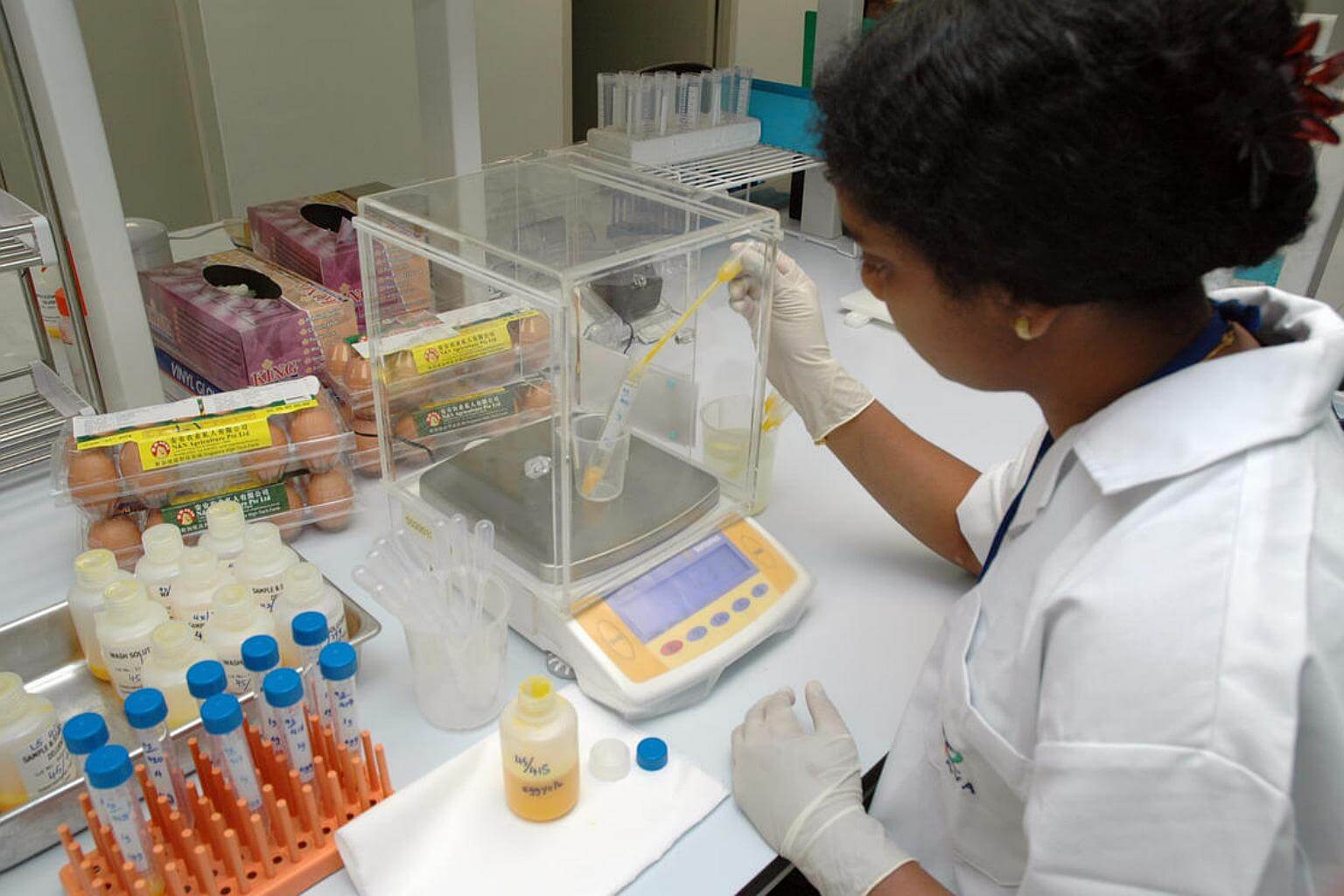Singapore to tackle bacterial resistance to antibiotics
MOH working with other bodies on action plan as more people turn to such medication
Sign up now: Get ST's newsletters delivered to your inbox

An AVA scientist checking a batch of eggs for banned antibiotics.
PHOTO: AVA
Singapore is developing a national action plan to tackle the problem of some bacteria becoming increasingly resistant to antibiotics.
This is even as more Singaporeans reach out to such medication as a quick fix for their ailments.
The Ministry of Health (MOH) told The Straits Times that it is working with the Agri-Food and Veterinary Authority (AVA), the National Environment Agency and the National University of Singapore (NUS) to develop a nationwide strategy for antimicrobial resistance in Singapore. This could include educating the public on which illnesses should or should not be treated with antibiotics, and stepping up the monitoring of their use.
Antimicrobial resistance refers to the ability of microbes such as bacteria and viruses to resist the effects of medicines that were previously able to kill them. These microbes develop resistance to antimicrobial medicines when the latter are overused or misused.
Dr Hsu Li Yang, associate professor and programme leader of the antimicrobial resistance programme at the Saw Swee Hock School of Public Health in NUS, said: "We are 'addicted' to antibiotics - it has become an integral part of human medicine and the livestock industry." The more antibiotics a person takes, the more pressure there is for the bacteria to evolve and become resistant, he added.
While the ministry did not provide details of the action plan, The Straits Times understands that it will likely stick closely to recommendations made by the World Health Organisation to tackle antimicrobial resistance.
Besides targeting human medicine, the recommendations also focus on the use of antibiotics in livestock. This could mean examining the use of antibiotics in Singapore's farms. The AVA currently has a surveillance programme which tests for antibiotic residues in locally farmed produce to ensure food safety.
Infectious diseases specialist Paul Tambyah said a comprehensive approach is needed. "Public education can help, especially when it is targeted at those who may not need antibiotics. But the reality is that far more antibiotics are used in agriculture than in human clinics and hospitals," he said.
Bacteria that have become resistant to antibiotics - including those found in livestock - can pass their resistance genes to others in the gut once the meat is consumed, especially if it is not cooked properly.
As for human medicine, Dr Tambyah said better methods to diagnose ailments are needed so that doctors can target antibiotic treatment at people who actually need it.
The MOH currently has guidelines for doctors on the prescription of antibiotics. But they are not mandatory. General practitioner Leong Choon Kit said this is because not all cases are clear-cut.
Even so, doctors do generally adhere to them, said those interviewed. Dr Winston Ho, medical director of Parkway Shenton, which has 55 clinics, said the decision to prescribe antibiotics when treating a patient for a particular infection is made after carefully assessing the patient's medical history and symptoms, among other things.
Patient education is key, he said.
"We encounter pressure from some patients to prescribe antibiotics for upper respiratory tract infections (URTIs) all the time... They need to know that the majority of acute URTIs are viral in origin and antibiotics do not work on viruses."
Investment analyst Issac Foo, 27, said he requests antibiotics from the doctor every time he has tonsillitis. "My tonsillitis is severe and I cannot get well unless I take antibiotics."
The rise of deadly superbugs rendering even the strongest of antibiotics ineffective is causing widespread concern around the world.
In September, world leaders agreed at the United Nations General Assembly to develop action plans that would curb the growing problem of antimicrobial resistance. It was only the fourth time in UN history that a health topic was discussed at the assembly, with the Ebola virus being among them.


